Our Cuba Policy: A Failure at 50
President-elect Obama will have more urgent matters to deal with after he takes the oath of office. But somewhere on his long to-do list, he should make a note to finally bring five decades of counterproductive American policy toward Cuba to a definitive end.It was around 3 a.m. on Jan. 1, 1959, when Cuban dictator Fulgencio Batista slipped away to the airport and fled his island nation, hauling as much loot as his aircraft could carry. Hours later, the audacious young man whose badly outnumbered guerrilla forces had defeated Batista’s army stepped onto a balcony overlooking Cespedes Park in the eastern city of Santiago. It was the first time that Fidel Castro had faced a cheering crowd as Cuba’s unquestioned leader. It would hardly be the last.
The turning of the year marks the 50th anniversary of the Cuban revolution — yet another reminder of wrongheaded U.S. policies that have unwittingly helped shield Castro’s revolution from historical trends that long ago should have forced the regime to give way, or at least compelled it to evolve.
President-elect Barack Obama will have more urgent matters to deal with after he takes the oath of office. But somewhere on his long to-do list, he should make a note to finally bring five decades of counterproductive American policy toward Cuba to a definitive end.
Dwight Eisenhower was president when Castro assured Cubans in Cespedes Park that he and his fellow revolutionaries were “immune to ambition and vanity.” U.S. officials were wary from the start. There had been a time when Batista was our man in Havana, although American policymakers had become disillusioned with him. No tears would have been shed in Washington if a more effective — and compliant — strongman had emerged, perhaps from the military, to take his place. But Castro was too much of a leftie, probably even a commie, and hardly seemed to be someone who could be counted on to play ball with the White House.
The first years of the relationship were the most eventful. Castro grew closer to the Soviets, the White House authorized the Bay of Pigs landing, the invasion failed, Cuba became a full-fledged Soviet client, the Cuban missile crisis took the world to the brink of Armageddon, and an uneasy standoff was established. Incomprehensibly, it persists to this day.
The laws and regulations that prohibit U.S. companies from trading with Cuba and forbid U.S. citizens to travel there made little sense during the Cold War. It was ironic that when Ronald Reagan went to Berlin and implored Mikhail Gorbachev to “tear down this wall,” our government was maintaining an analogous wall — one made of rules, not of concrete — between the United States and Cuba.
U.S. policy for dealing with the rest of the communist world was always to push for more contact and exchange, on the theory that exposure to Western ideas, freedoms and prosperity would hasten communism’s demise. It worked.
I’m convinced it would have worked in Cuba, too. At the very least, if the U.S. government had treated Cuba the way it treated other communist nations, the onus would have been on Castro. If he wanted to keep Cuban society from being infected by democracy, consumerism and other yanqui diseases, he would have had to justify measures to keep Americans and American products out. Instead, he has been able to portray his revolution as a noble David, menaced by a hulking, aggressive Goliath to the north.
Over the years, I’ve made 10 reporting trips to Cuba. I’ve been struck by the fact that even Cubans who are harshly critical of the Castro regime — privately, of course, since public criticism is not allowed — are equally scornful of the U.S. trade embargo and travel ban, which they believe have hurt the Cuban people while bolstering hard-liners in the leadership.
Now that the dashing, iconic Fidel has been succeeded as president by his brother, Raul, the United States is presented with the latest in a series of opportunities to finally get Cuba policy right.
Raul Castro has given every indication that he is more pragmatic than his ailing older brother — and also that he is aware of how far behind the rest of the world Cuba has fallen. Many observers believe he wants to move toward the Chinese model of free-market economics and continued one-party rule. Any fundamental reforms are unlikely, however, as long as Fidel still draws breath.
But Fidel is 82 and in very poor health; he has outlasted 10 U.S. presidents, but isn’t likely to survive his 11th. Obama should prepare for the inevitable by recognizing the obvious: If a set of policies haven’t produced results for 50 years, it really is time to try something else.
Eugene Robinson’s e-mail address is eugenerobinson(at)washpost.com.
© 2009, Washington Post Writers Group
Your support matters…Independent journalism is under threat and overshadowed by heavily funded mainstream media.
You can help level the playing field. Become a member.
Your tax-deductible contribution keeps us digging beneath the headlines to give you thought-provoking, investigative reporting and analysis that unearths what's really happening- without compromise.
Give today to support our courageous, independent journalists.
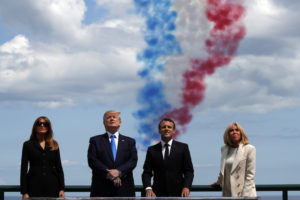

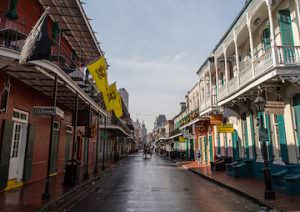
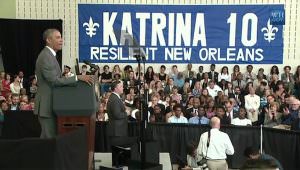
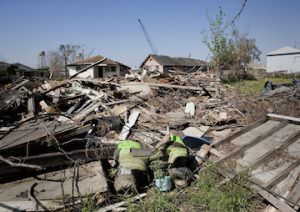
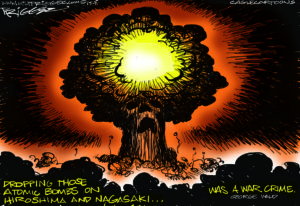
You need to be a supporter to comment.
There are currently no responses to this article.
Be the first to respond.